Unsure if you want to take the PADI Advanced Open Water Diver (AOW or AOWD) course? Read on to learn everything you need to know including:
The PADI Advanced Open Water Diver course is designed to help you improve your skills, gain confidence and experience new things with a PADI Instructor by your side. You’ll practice navigation, try a deep dive and make three Adventure Dives of your choosing.
Many people worry the Advanced Open Water Diver course will be more difficult than the Open Water Diver course. The opposite is true (ask any advanced diver or instructor).
Remember that the Open Water Diver course is designed to take people who have never put on scuba gear and turn them into underwater explorers. It’s a huge transformation.
The AOW course, on the other hand, is all about advancing the skills you already mastered in your entry-level course and experiencing new activities, which builds on your abilities, skills and confidence. You learn by diving with a PADI Instructor.
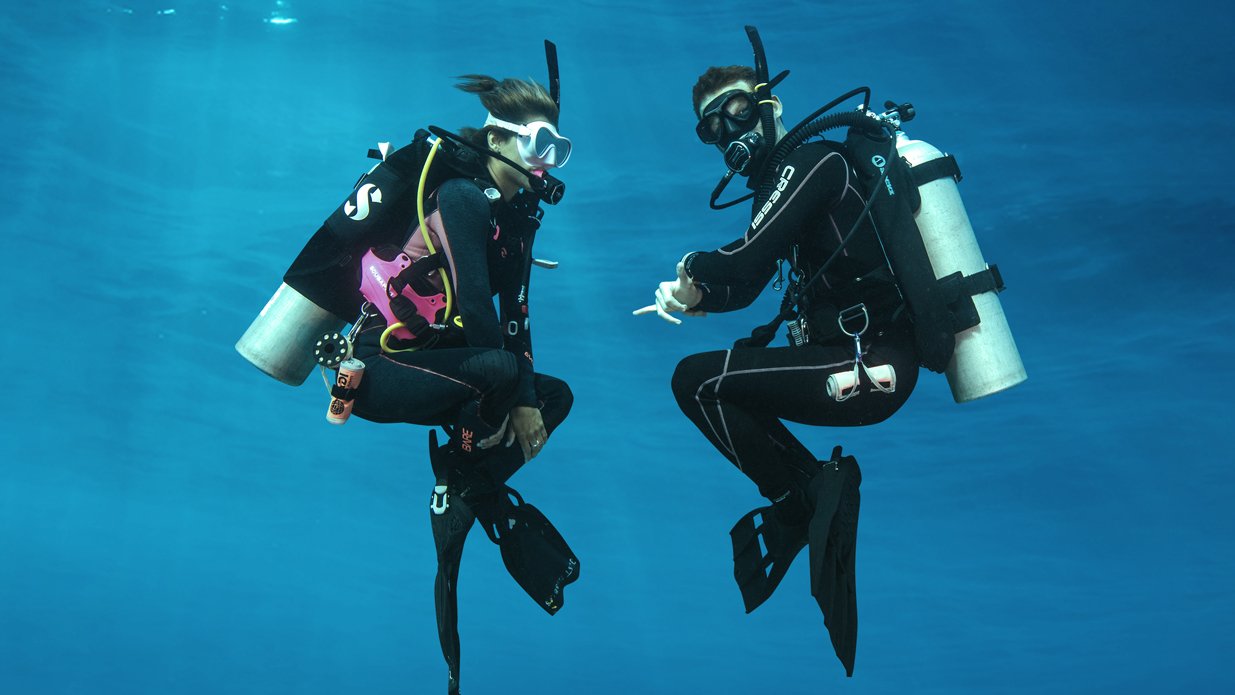
In the Open Water Diver course, you learn all the scuba diving basics: how to assemble gear, ascents and descents, etc. In the Advanced Open Water Diver course, you hone your skills and try different types of diving activities.
Both courses include open water dives with a PADI Instructor. But, apart from that, the courses are quite different.
The PADI Advanced Open Water Diver course has:
Very little classroom/reading compared to the Open Water Diver course No exam Two required Adventure Dives: a deep dive and an underwater navigation dive Three Adventure Dives of your choosingPADI Advanced Open Water Diver is like a sampler platter. It includes a deep dive and an underwater navigation dive, but the other three dives are your choice. Try underwater photography, wreck diving, night diving — whatever interests you. There are more than two dozen Adventure Dives to choose from (see list below).
Related Reading:
To start the PADI Advanced Open Water Diver course, you only need an Open Water Diver certification. To be clear: you don’t need any dives in addition to those you completed during your Open Water Diver course; you only need to have completed the dives that are part of your Open Water Diver certification training.
Many divers start their Advanced Open Water Diver training immediately after completing their Open Water Diver certification. (I wish I had! My first open water dive after certification was…not ideal.)
During the PADI Advanced Open Water Diver course, you’ll make five dives. These dives are referred to as “Adventure Dives.”
There are two required dives: Deep and Navigation.
During the deep dive, an instructor will take you below the Open Water Diver depth limits (18-30 meters/60-100 feet). For the underwater navigation dive, you’ll practice navigation and compass skills on land first, then underwater.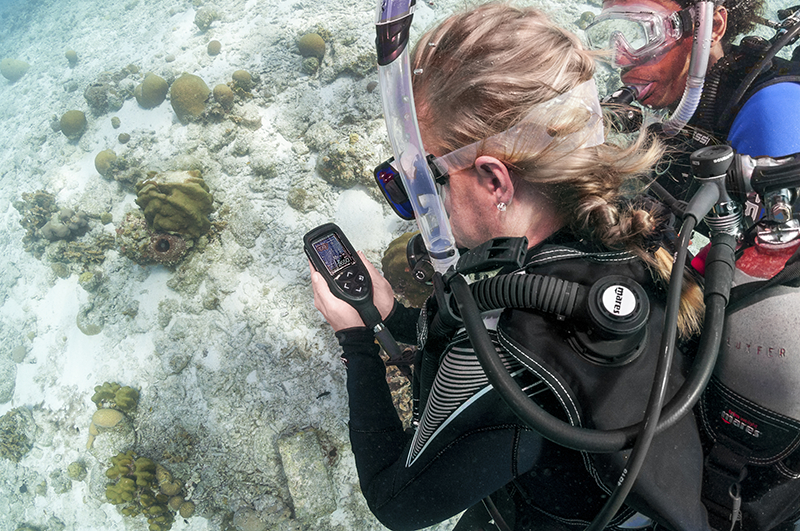
The three remaining dives are your choice. Talk to your PADI Instructor about your interests and find out what types of Adventure Dives are available.
These Adventure Dives are available almost anywhere:
Fish Identification Night Peak Performance Buoyancy Digital Underwater Imaging Search & Recovery Underwater Naturalist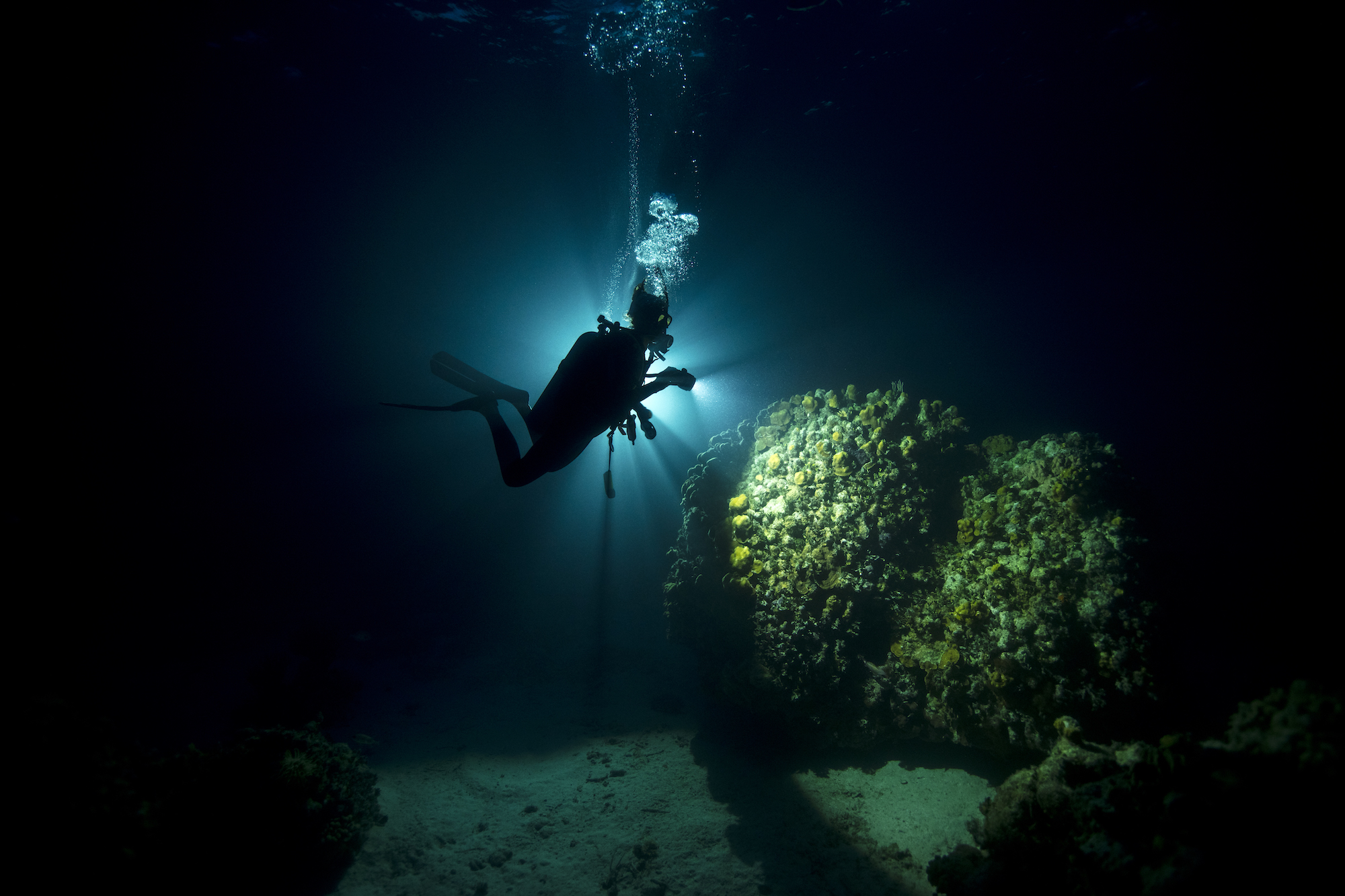
The specialty dives below may not be available in all locations. Contact your instructor or dive shop to confirm availability.
Adaptive Support Altitude Boat Cavern Delayed Surface Marker Buoy (DSMB) Dive Against Debris Diver Propulsion Vehicle (DPV) Drift Dry Suit Enriched Air Full Face Mask Ice Rebreather Self-Reliant Diving Shark Conservation Sidemount WreckBONUS: Each Adventure Dive you make can be credited toward the related PADI Specialty certification. For example, if you try a dry suit dive during your PADI Advanced Open Water Diver course and like it, you’ll already have one of the two dives required for the PADI Dry Suit Diver Specialty certification.
It’s always a good idea to ask your PADI Instructor what they recommend, but you also want to consider courses that interest you. Here are a few suggestions to consider:
Most people aren’t naturally good at buoyancy, and there are a lot of benefits to getting this skill dialed in. That’s why I always recommend the Peak Performance Buoyancy Adventure Dive to my students.
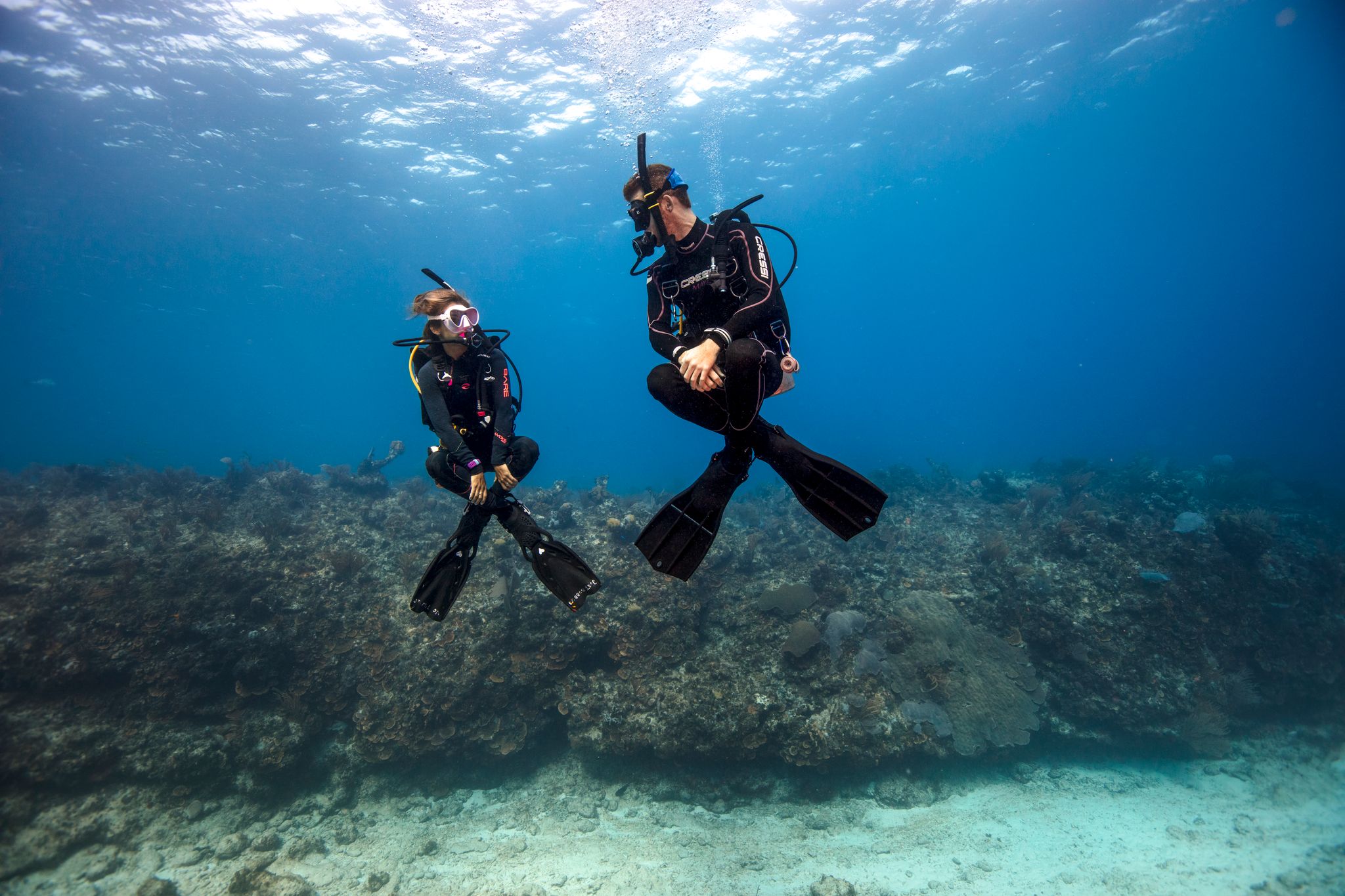
If you plan to shoot underwater photos or video, the Digital Underwater Photography Adventure Dive (which includes videography skills) can help you avoid common beginner mistakes. Your instructor can show you techniques that will drastically shorten the learning curve. Learn more about the Digital Underwater Photographer Specialty course.
Secretly freaked out by night diving? You’re not alone. Try it for the first time with a PADI Instructor by your side.
It takes about six to eight hours to complete the PADI Advanced Open Water Diver eLearning.
Sign Up for Advanced Open Water Diver Online
Debating whether to use PADI eLearning®? Read about one diver’s eLearning experience.
MYTH: You need to be advanced or have a lot of diving experience before starting the Advanced Open Water Diver course.
The only Advanced Open Water Diver prerequisite is that you are certified as a PADI Open Water Diver, Junior Open Water Diver, or have a qualifying, entry-level certification through another training organization. Other than that, all you need is to be fit to dive.
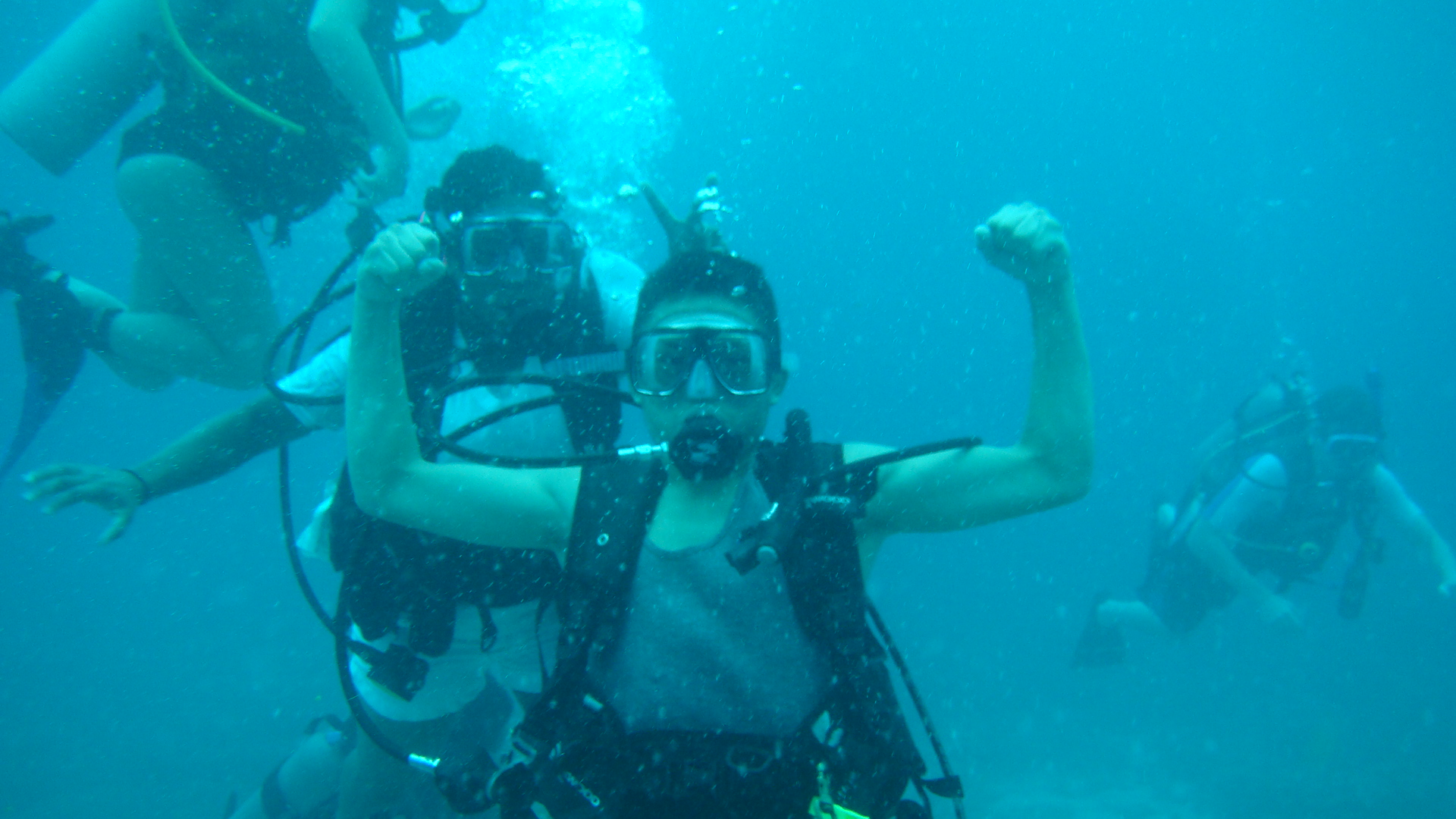
If you’d like to improve your skills, become a more confident diver and have new adventures — the PADI Advanced Open Water Diver course is totally worth it! As mentioned above, PADI AOW requires very little studying compared to the Open Water Diver course, and there’s no exam.
Plus, for every Adventure Dive you complete, you can earn credit toward a PADI Specialty certification. If you choose to make a Digital Underwater Imaging Adventure Dive as part of your Advanced Open Water Diver course, you’ll be just one dive away from earning your Digital Underwater Photographer certification.
You’ll also be qualified to dive deeper than someone with an Open Water Diver certification. This will unlock some truly mind-blowing scuba diving destinations.
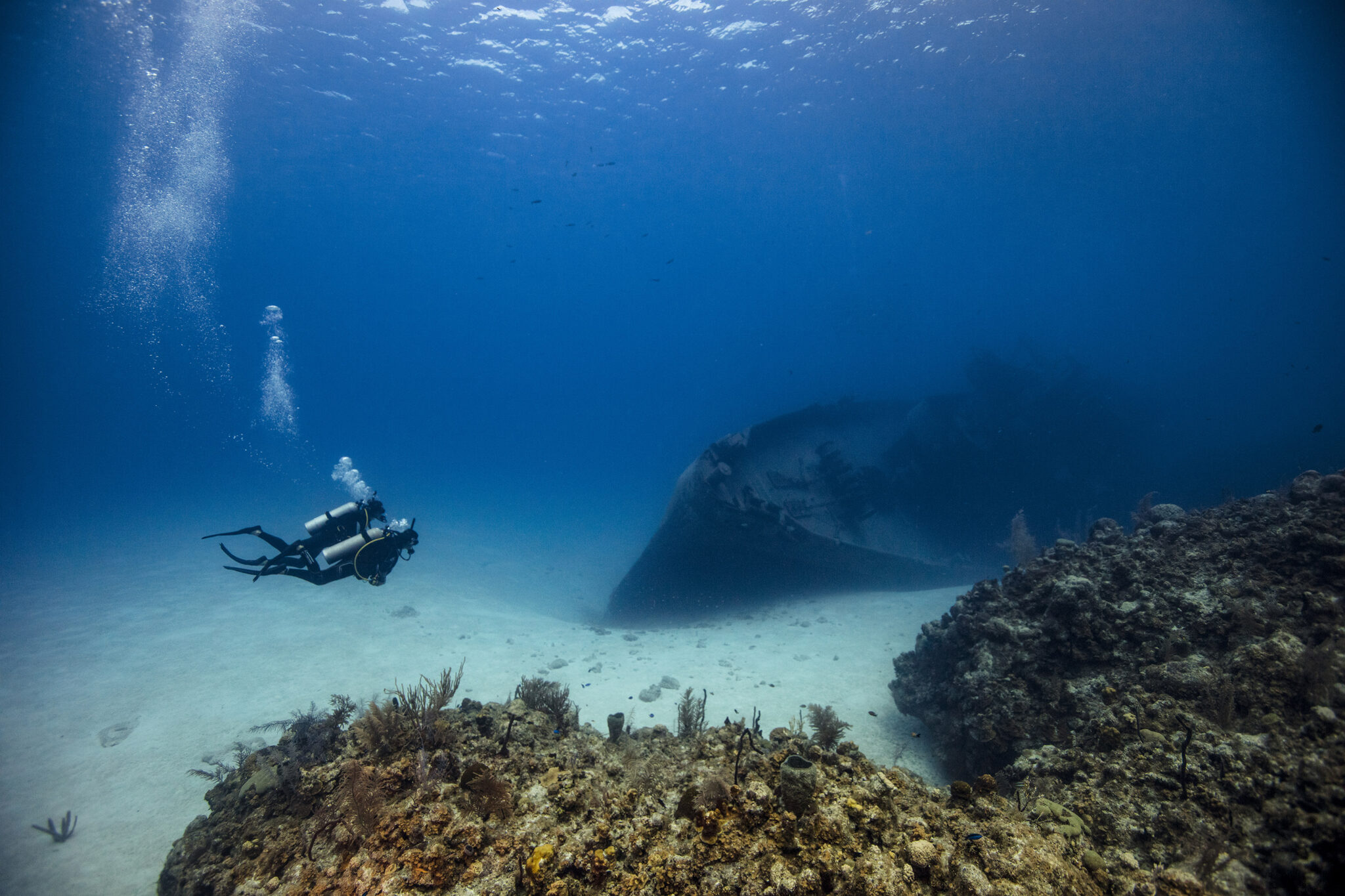
An Advanced Open Water Diver certification qualifies you to dive to 30 meters/100 feet.
If you want to dive to the recreational limit of of 40 meters/130 feet, you’ll need to enroll in the PADI Deep Diver course and make three additional dives. Learn more about the difference between Advanced Open Water Diver and Deep Diver here.
Every PADI Dive Shop is independently owned, so the cost can vary from place to place. Class size (a group class versus semi-private) can also affect the price. Contact a dive shop near you, or in the area where you will be traveling, for pricing.
Prior to starting the course at your dive shop of choice, you can always get started at home with the Advanced Open Water Diver eLearning. This will allow you to complete the Knowledge Development section of the course before diving into the water with your PADI Instructor. Click the button below to get started now.
Start the AOW Course Now With eLearning
PADI Club™ members receive a 20% discount on PADI Advanced Open Water Diver eLearning — and many other courses. Learn more about the PADI Club eLearning discount and other PADI Club benefits or sign up for PADI Club.
Share This